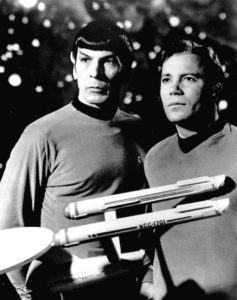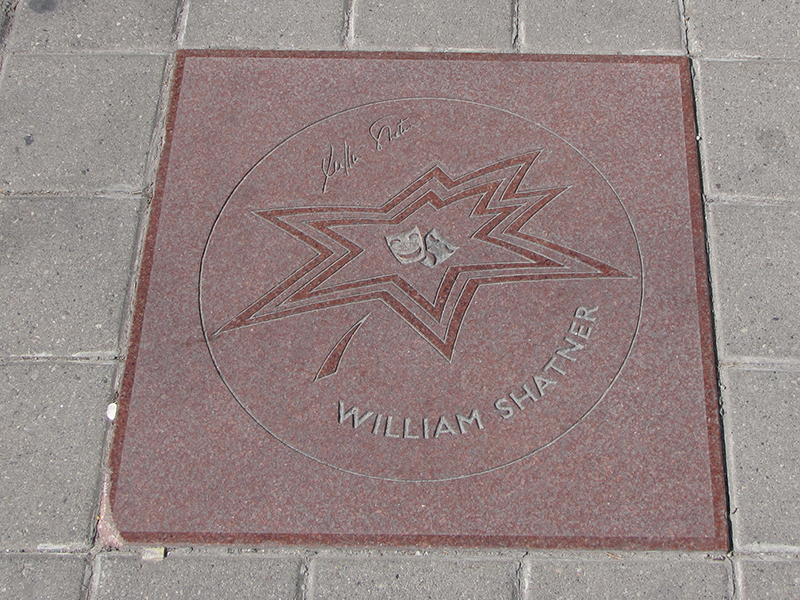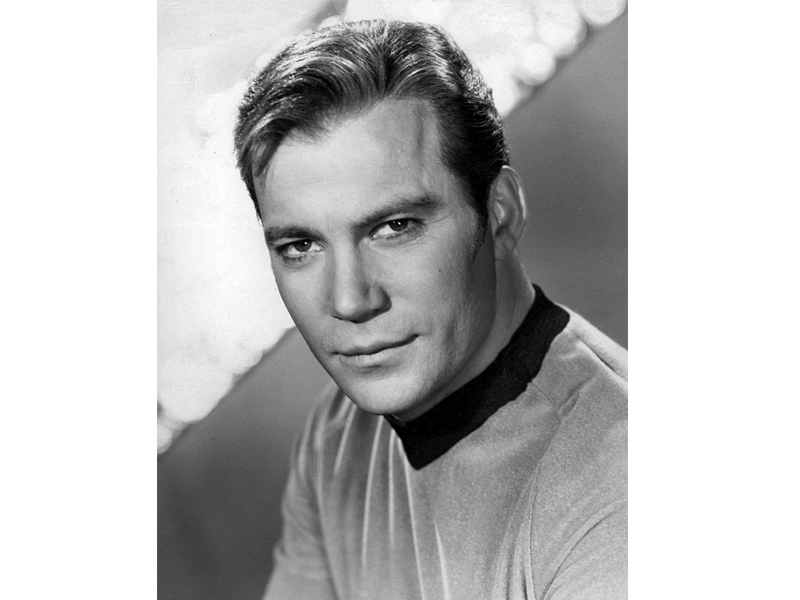In honour of Canada’s 150th birthday, The CJN presents 40 profiles of some of the most prominent Jewish Canadians throughout our history.
If things had worked out differently, William Shatner would have had a career as a Shakespearean actor and lived a much quieter life. But as fate would have it, he ended up being cast as Capt. James T. Kirk, commander of the USS Enterprise, and became a cultural icon.
Star Trek lasted just three seasons, but the show catapulted Shatner into a lifetime of making films and television shows, some acclaimed and some derided by critics. Along the way, Shatner, who was born and raised in Montreal, won two Emmy Awards for his work on Boston Legal and was awarded a star on both Canada’s and Hollywood’s Walk of Fame, and an honorary Doctorate of Letters from his alma mater, McGill University.
Born in 1931 in Montreal’s West End to Anne and Joseph Shatner, a clothing manufacturer, William Shatner started his career as a child actor with CBC Radio.

In an interview with the Guardian, Shatner recalled his upbringing as “very standard. I went to McGill University, so I was living at home for the first 21 years of my life and stuck pretty much to the grindstone. Money was very tight, so I had to do it entirely on my own.”
Shatner described being raised Jewish, saying, “I went to synagogue and was bar mitzvahed in the Jewish tradition. I never quite understood or got it.”
Despite that, he raised his own three daughters as Jews, and it was a shared religious background that helped him bond with his Star Trek co-star, Leonard Nimoy, who played the inscrutable Mr. Spock.

“Both Leonard and I got called nasty anti-Semitic names. Experiences like that create a sort of subtext, and as we got to know each other, those common experiences helped bind us together. It’s almost an emotional shorthand,” he wrote in Leonard: My Fifty-year Friendship with a Remarkable Man, a book about his relationship with Nimoy.
After earning a BA in commerce at McGill, Shatner began training as a classical Shakespearean actor with the National Repertory Theatre of Ottawa and appeared in productions at the Stratford Festival – a theatre festival in Ontario – where legendary director Tyrone Guthrie said he was Stratford’s most promising actor.
But Shatner, always eager to work, turned to the United States, appearing briefly on Broadway and in numerous television shows and movies.
His life-changing moment came in 1966, when he was cast as Capt. Kirk in Star Trek. In a 1968 episode, he had the distinction of kissing actress Nichelle Nichols (Lt. Uhura), which is thought to be the first example of a white man and a black woman kissing on scripted television.
Although Star Trek only ran for three seasons, it gained a cult following in reruns and eventually spawned a movie franchise. Shatner reprised his role as Capt. Kirk in seven of the Star Trek movies and directed one of them (Star Trek V: The Final Frontier).
Shatner is an inveterate work horse, appearing in dozens of films and television shows, most memorably as a veteran police officer on T.J. Hooker and as Big Giant Head on 3rd Rock from the Sun. He could also be seen as a pitchman for everything from Loblaws grocery stores in the 1970s, to the travel website, priceline.com, where he appears as the somewhat pompous persona he has created.

Those ads led to his more recent role as aging, eccentric lawyer Denny Crane on the television series The Practice and then Boston Legal, which ran until 2008.
Now in his 80s, Shatner continues to write, act and pursue his hobby of showing horses.
In 2013, he was honoured with a lifetime achievement award from the Stratford Festival, where he launched his professional career so many years ago. As the Globe and Mail reported, he made it clear that he has no plans to retire.
Accepting his award, Shatner said, “This is really good, giving awards to living legends, but there’s a problem, there’s a problem – I’m a legend in the making, OK?”







